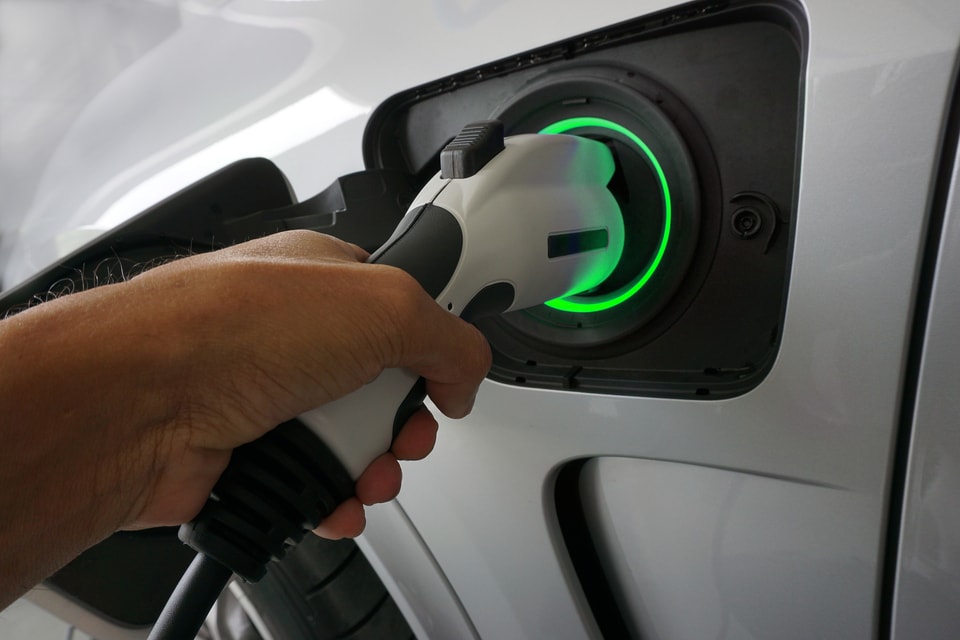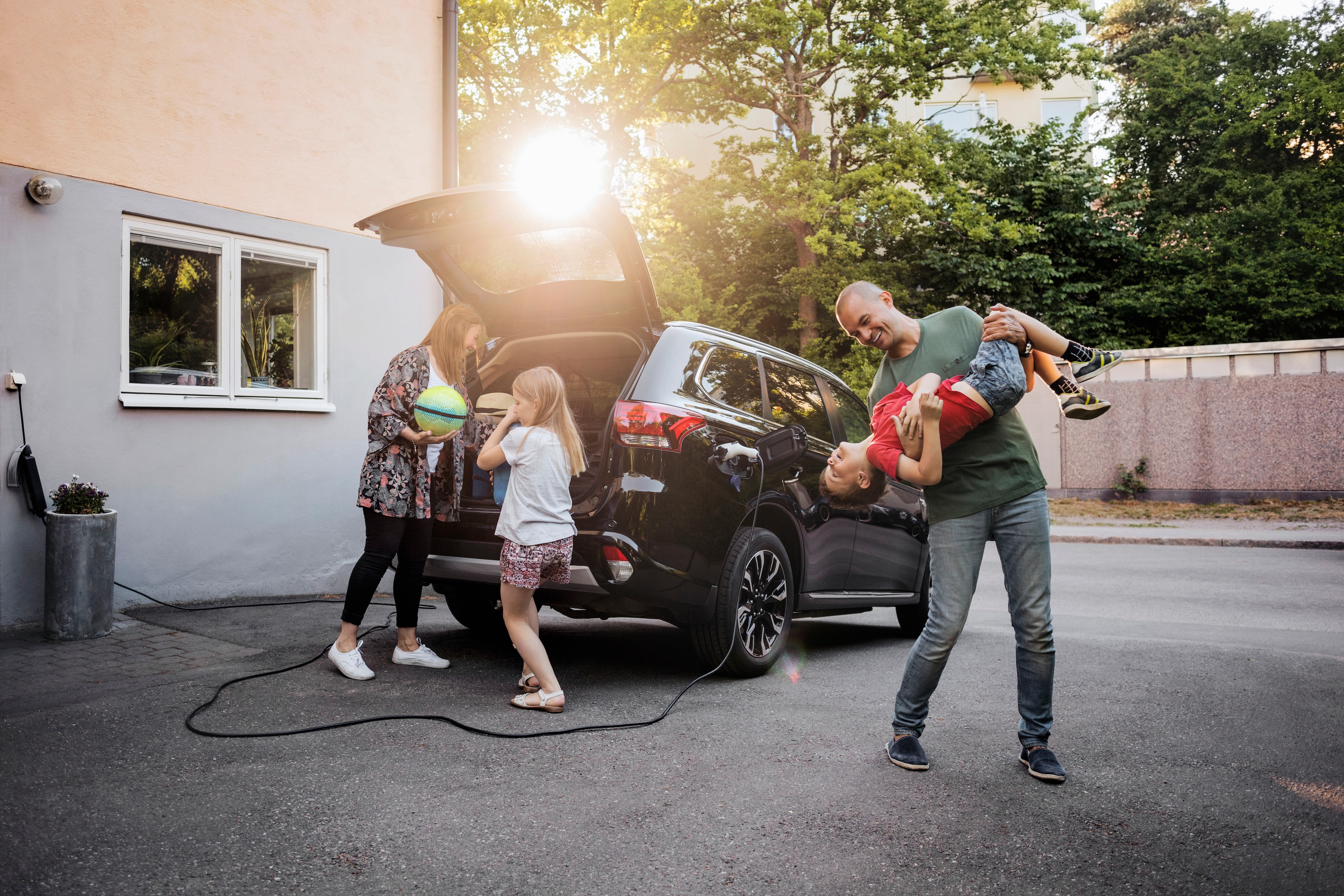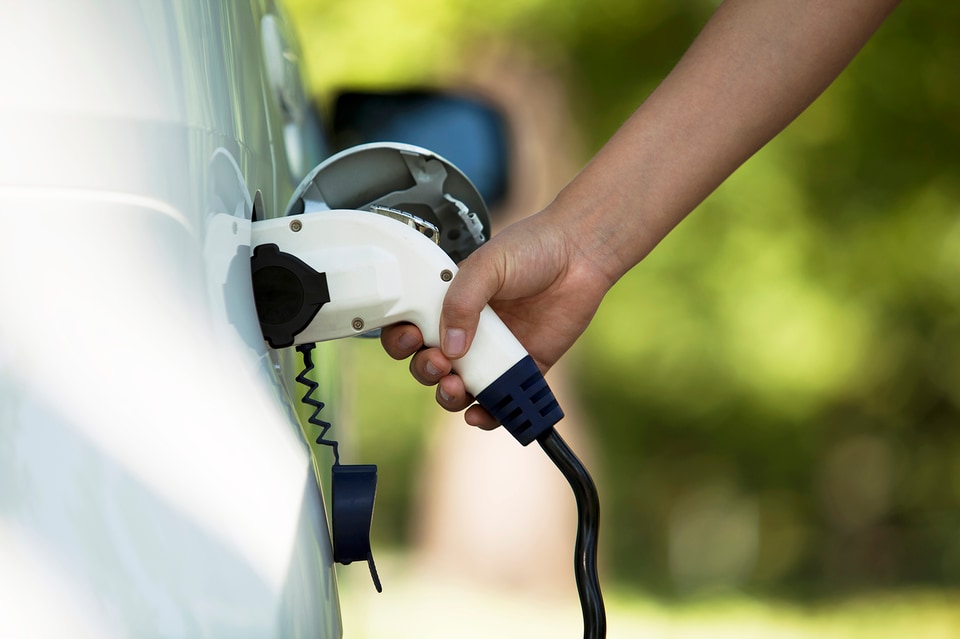Understanding EVs
Which EV is Right for Me?
Benefits of Plugging In
96%
A Quick Guide for New EV Owners
Understanding EV Charging
Charging times vary depending of the type of charger used.Level 1 Electric Vehicle chargers use a standard household outlet and charge about 2-5 miles of range per hour, making Level 1 a good choice for NJ drivers with plugin hybrid vehicles but not battery electric vehicles.
Level 2 Electric Vehicle chargers can be installed at your New Jersey home by a professional electrician and charge about 10-20 miles of range per hour. A good choice for any EV when charging overnight or all-day is possible.
Level 3 Electric Vehicle fast chargers are the most efficient and can be found at commercial locations near Summit, NJ. Level 3 can charge about 60-80 miles of range in about 20 minutes, making it a good choice for any EV when a quick charge is needed on the go.

Charging from Home in NJ
For plug-in hybrid vehicles a standard 120V outlet supports a Level 1
charger. Level 1 EV chargers will be sufficient for overnight charging.
For battery electric vehicles, they require Level 2 chargers with a 240V
outlet. We recommend a 240V outlet to be installed by a licensed
electrician. If you do not own your Union County home, you may need to
work with your property owner to install a Level 2 charger.

Battery Care
Most batteries will last between 100,000 and 200,000 miles when properly cared for. With battery technology continually advancing, that number will continue to increase. If you can keep your battery between 20% and 80% charged most days and avoid extremely hot temperatures, you can expect your maintenance to be minimal.

Charging Stations Near Salerno Duane Ford Summit , NJ 07901
Commonly Asked Questions About Electric Vehicles (EVs)
Other advantages of owning an EV include:
- Eligible EVs may also qualify for HOV lane access, which are normally restricted to vehicles with multiple passengers.
- Many electric companies offer lower rates based on the time of use. With EVs, you can save money by charging during off-peak times.
- If you're able to charge from work or home, there's usually no need to stop to refuel like you would in a gas-powered vehicle.
- EVs produce zero tail-pipe emissions resulting in cleaner air and better health.
This will vary depending on the local price of electricity and gas and where you are charging (at home or public charger), but most EV owners can expect to save on fuel cost. A recent Consumer Reports study found the “typical EV owner who does most of their fueling at home can expect to save an average of $800 to $1,000 a year on fueling costs over an equivalent gasoline-powered car.”
Source: Benjamin Preston. October 08, 2020. EVs Offer Big Savings Over Traditional Gas-Powered Cars.
https://www.consumerreports.org/hybrids-evs/evs-offer-big-savings-over-traditional-gas-powered-cars/A recent Consumer Reports study found “maintenance and repair costs for EVs are significantly lower over the life of the vehicle – about half – than for gasoline–powered vehicles, which require regular fluid changes and are more mechanically complex. The average dollar savings over the lifetime of the vehicle is about $4,600.”
Source: Benjamin Preston. October 08, 2020. EVs Offer Big Savings Over Traditional Gas-Powered Cars.
https://www.consumerreports.org/hybrids-evs/evs-offer-big-savings-over-traditional-gas-powered-cars/- Level 1 chargers use a standard household outlet and charge about 2-5 miles of range per hour, making Level 1 a good choice for plugin hybrid vehicles but not battery electric vehicles.
- Level 2 chargers can be installed at your home by a professional electrician and charge about 10-20 miles of range per hour. A good choice for any EV when charging overnight or all-day is possible.
- Level 3 fast chargers are the most efficient and can be found at commercial locations. Level 3 can charge about 60-80 miles of range in about 20 minutes, making it a good choice for any EV when a quick charge is needed on the go.
Ready to Shop?
How Can We Help?
* Indicates a required field